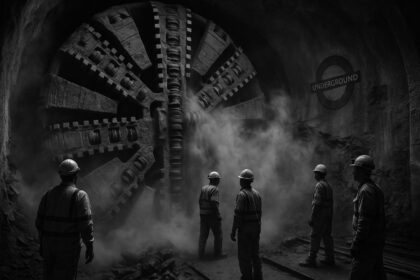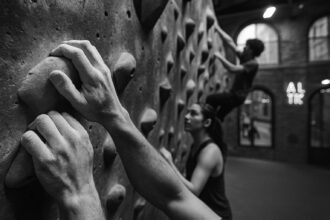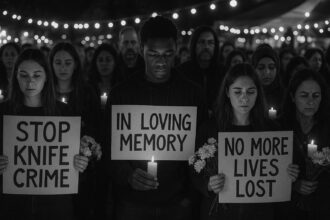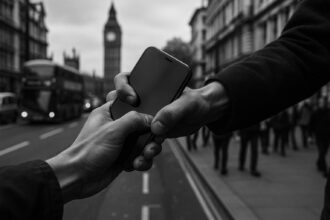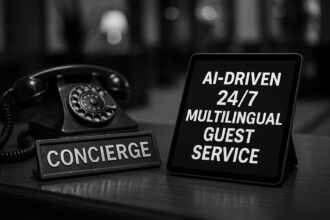A physical altercation between two female Secret Service agents outside former President Barack Obama’s Washington residence has raised serious concerns about professional conduct and the impact of diversity initiatives on agency standards. The incident follows a series of troubling episodes, prompting congressional scrutiny of the Secret Service’s vetting processes.
A recent altercation involving two female Secret Service agents outside former President Barack Obama’s Washington, D.C., residence has reignited concerns over the agency’s culture and operational integrity. The incident, which took place in the early hours of May 21, was captured on video and showed the agents grappling beside a police vehicle, raising eyebrows and questions regarding the conduct of those tasked with protecting high-profile individuals.
The confrontation reportedly began shortly after 2:30 a.m. One of the agents was heard on audio calling for a supervisor just before the physical altercation escalated, stating, “Can I get a supervisor down to Delta two immediately before I whoop this girl’s ass.” In response, a Secret Service spokesperson confirmed that both agents were suspended from duty and that an internal investigation had been launched. The spokesperson also stressed that the agency maintains a strict code of conduct, indicating that any violation of this code would be dealt with seriously.
This incident is not an isolated one; the Secret Service has faced scrutiny in recent years for unprofessional conduct and substantial security lapses. A notable example occurred last year, when an agent assigned to then-Vice President Kamala Harris was removed from duty after exhibiting erratic behaviour and ultimately attacking a superior officer. Reports indicated that this agent, identified as Michelle Herczeg, displayed increasingly erratic behaviour, including deleting applications from a colleague’s phone and throwing items around, culminating in a physical attack on her colleagues.
Such incidents have prompted a closer examination of the Secret Service’s hiring and vetting processes. Concerns have been raised about how diversity, equity, and inclusion (DEI) initiatives may have potentially influenced the selection of agents like Herczeg, who entered service despite prior allegations of unprofessional behaviour. Sources within the agency have expressed apprehension, suggesting that these initiatives might inadvertently compromise rigorous standards of professionalism, especially given the agency’s pivotal role in safeguarding national figures.
The House Oversight and Accountability Committee has taken steps to investigate the potential vulnerabilities in the Secret Service as part of a broader inquiry into the agency’s hiring practices. The committee’s deliberations indicate a growing concern that such practices, particularly those tied to DEI policies, may have allowed individuals with troubled backgrounds to be assigned to critical security posts.
As the Secret Service confronts these challenges, many are asking whether the agency can uphold its longstanding reputation amidst a backdrop of internal conflicts and public scrutiny. The recent fight outside Obama’s home serves as a stark reminder that the efficacy of the Secret Service is closely tied to the professionalism of its agents. Ensuring that those who wear the well-recognised badge meet strict standards of conduct and reliability is paramount, not only for the agency’s reputation but also for the safety of those they are sworn to protect. The agency has vowed to investigate thoroughly, but the path to restoring public confidence may be fraught with complexities.
Reference Map:
Source: Noah Wire Services
- https://www.dailymail.co.uk/news/article-14754731/Obama-female-secret-service-agents-fight-DC.html?ns_mchannel=rss&ns_campaign=1490&ito=1490 – Please view link – unable to able to access data
- https://politicaliq.com/2024/04/26/khdetailincidremo/ – An article detailing the removal of Secret Service agent Michelle Herczeg from her duties after an incident at Joint Base Andrews. The piece describes Herczeg’s erratic behaviour, including deleting applications from a colleague’s phone, hiding behind curtains, and throwing items at another agent. The situation escalated when she physically attacked her superior officer, leading to her being disarmed, handcuffed, and removed from the premises. The article also mentions concerns about the Secret Service’s hiring practices and the role of diversity, equity, and inclusion initiatives in the selection process.
- https://newsaroundthehill.com/2024/05/20/did-dei-play-a-role-in-secret-service-agents-breakdown/ – This article examines the incident involving Secret Service agent Michelle Herczeg, who was removed from her duties after displaying erratic behaviour at Joint Base Andrews. The piece explores the potential influence of diversity, equity, and inclusion (DEI) initiatives on the Secret Service’s hiring and vetting processes, questioning whether such initiatives may have played a role in Herczeg’s selection despite her previous legal challenges and allegations of unprofessional conduct.
- https://www.realclearwire.com/articles/2024/04/25/secret_service_scuffle_prompts_dei_vetting_scrutiny__150846.html – An article reporting on the physical altercation involving Secret Service agent Michelle Herczeg, who was removed from her duties after attacking her superior officer at Joint Base Andrews. The piece highlights concerns within the Secret Service community regarding the agency’s hiring and vetting processes, particularly in relation to diversity, equity, and inclusion (DEI) initiatives, and questions whether these factors influenced Herczeg’s selection despite her previous legal disputes and allegations of unprofessional behaviour.
- https://tennesseestar.com/policy/oversight-panel-investigates-secret-service-dei-practices/realclearwire/2024/06/02/ – This article discusses the House Oversight and Accountability Committee’s investigation into potential vulnerabilities in the Secret Service’s ability to protect high-profile individuals, prompted by an incident involving Secret Service agent Michelle Herczeg. The piece delves into concerns about the agency’s diversity, equity, and inclusion (DEI) hiring decisions and vetting processes, questioning whether these practices may have contributed to the selection of an agent with a contentious background.
- https://www.highlandcountypress.com/opinions/dissension-toxicity-plagued-trumps-secret-service-detail – An opinion piece highlighting various instances of unprofessional behaviour and security lapses within the Secret Service, including the incident involving agent Michelle Herczeg. The article discusses concerns about the agency’s hiring practices, particularly in relation to diversity, equity, and inclusion (DEI) initiatives, and questions whether these practices have led to the selection of agents with questionable backgrounds and conduct.
- https://crystalclearnews.com/erratic-secret-service-agent-sparks-controversy-on-hiring-practices/ – An article reporting on the incident involving Secret Service agent Michelle Herczeg, who was removed from her duties after displaying erratic behaviour at Joint Base Andrews. The piece raises questions about the Secret Service’s hiring policies, particularly in relation to diversity, equity, and inclusion (DEI) initiatives, and whether these factors influenced the selection of an agent with a contentious background and previous legal disputes.



